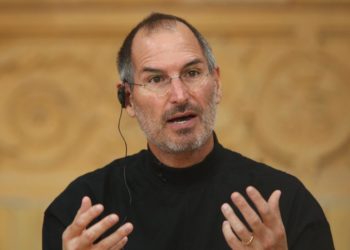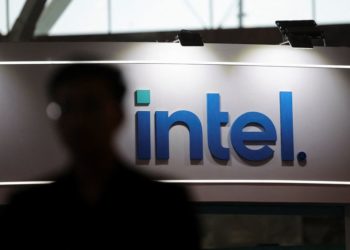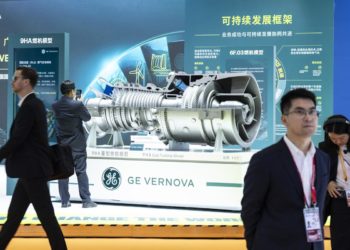Todd Weaver has an important message for Apple as it faces growing demands by President Donald Trump to reshore some of its smartphone production: Don’t listen to the conventional wisdom.
Experts have long said that manufacturing iPhones in the U.S., rather than Asia, as Apple does, would be logistically impossible and ridiculously expensive. But Weaver argues companies can indeed do it successfully, and at a similar or only slightly higher cost—if given several years to navigate the inevitable complications.
Weaver should know: His startup, Purism, is among the few, if not the only business, that assembles smartphones in the U.S. In fact, the U.S. pedigree is the main selling point of his company’s Made in America device, the Liberty Phone.
“It is challenging to do this in the U.S.,” Weaver acknowledges. “It’s probably the reason I’m the only one.” And yet, he says his company has managed to make it work and has been profitable for the last two years—a real world example of what’s possible on a hot-button topic in which political talking points and vested interests often dominate the debate.
President Donald Trump recently put U.S. smartphone production in the spotlight as part of his global trade war. On May 23, he used social network Truth Social to publicly attack Apple for importing iPhones into the U.S., rather than making them domestically, and then threatened the company with a 25% tariff if it continued to do so.
Whether any of the import taxes will become permanent is unclear given Trump’s whiplash decision-making and court challenges by third parties.
Still, Apple has long assembled its iPhones overseas, mainly in China, and has resisted relocating any of that production to the U.S. In April, when Trump announced his tariffs, Apple went so far as to shift the sourcing of most U.S.-bound iPhones to India, which faced lower import taxes. U.S. assembly was never publicly mentioned as a possibility. In the past, Apple CEO Cook explained the reluctance by saying the abundance of skilled labor and top-notch suppliers overseas would be difficult to reproduce at home.
Weaver’s company, of course, is no Apple, which has sold more than 2 billion iPhones globally since introducing the first models in 2007. The devices unleashed a new era in the tech industry in which mobile devices became the prime focus.
Purism, in contrast, has sold just tens of thousands of phones since debuting its first model in 2018, according to Weaver. And the company is barely-known outside the world of tech nerds.
Its Liberty Phone, manufactured near San Diego, comes with U.S.-made electronics installed on a metal chassis from China. It retails for $1,999. Another phone, the Librem 5, is mostly the same design, except it’s made in China with Chinese parts, and costs $799.
The company also produces tablet computers, laptops, and servers.
Purism pitches its Made in America device as more secure and privacy friendly than those from major manufactures like Apple. Because all the critical parts and assembly are domestic, it’s easy to verify that they haven’t been tampered with by a foreign adversary that wants to snoop or stuff them with explosives.
The phones also run on a Linux-based open source operating system. Anyone with technical know-how who is worried about the security can review the code—unlike with more popular phones, which come with operating systems that can’t be easily inspected.
Additionally, Purism’s phones come with three kill switches that lets users physically disconnect their device from cell service, Wi-Fi and Bluetooth, along with its microphone and camera. When turned on, the switches sever the electrical circuit to the features they control and make it impossible for them to be accessed by hackers, Weaver said. Toggling on Airplane Mode, as users often do on more mainstream phones, is less secure, he said, because it’s a purely software feature that doesn’t cut power to the device’s chips.
Customers who are especially security conscious can pay extra to have their devices shipped with “tamper evident tape” on the packaging, among other options, to flag any monkey business during transit.
Purism’s biggest customers are government agencies, many of which require high security, and individual consumers. The company’s clients, Weaver said, include the FBI and the House Select Committee on Intelligence.
Weaver said the cost of manufacturing the Purism’s two phones is largely the same, despite one being made overseas and the other domestically. The phone that’s made in China costs around $600 for parts, manufacturing, and assembly while the U.S.-made one comes in at $650.
“Producing goods in China vs. the U.S. is the same plus or minus 10%,” said Weaver, based mostly on automation.
The difference between what Purism charges customers for its two phones is partly due to the higher profit margin the company collects for its U.S.-made device. People who want stronger security are often willing to pay extra for it, Weaver said. It also covers the extra overhead from some customers wanting to verify that Purism’s supply chain is secure and the small additional cost of U.S. manufacturing.
Purism’s assembly line is in Carlsbad, Calif., where up to a dozen workers put together devices. The area is home to a pool of skilled labor thanks to the local defense industry and manufacturing for other mobile carriers.
That relatively modest assembly line is a major contrast to the factories that make iPhones, operated by contract manufacturers, mostly in China. Those facilities can be the size of several football fields and employ over 100,000 people who work around-the-clock shifts.
Weaver said the U.S. is at a huge disadvantage to China when it comes to skilled workers, who make up a significant part of the workforce in smartphone factories. The only way to reverse the shortage and lay the groundwork for companies to reshore their production is to encourage more people to learn skills that are useful in the manufacturing process, he said.
“If you go over to China you can find buildings and buildings of thousands of electronics engineers. If you look here, you can find maybe five total,” Weaver said.
Apple, for example, would risk a catastrophe if it suddenly, in 2026, needed to ramp up staffing in the U.S. to produce millions of iPhones, he said. Training enough people for such a massive undertaking would take years.
Weaver said Purism, founded in 2014, took several years to develop its domestic supply chain. The company’s small size means it only needs limited quantities of components, which makes it impossible to achieve the economies of scale that come from producing huge numbers of devices. Manufacturing in the U.S. also comes with higher labor costs than in China. But with the help of automation, those extra costs can be kept to a minimum by reserving human labor for tasks performed after production is complete, such as soldering, assembly, repairs, and testing.
Apple, on the other hand, would need vast amounts of components to keep its assembly line humming. While the company would likely be able to cut deals with domestic suppliers for most iPhone parts, some, such as high-quality cameras, may be impossible to quickly source in the U.S. and it would therefore have to import them, Weaver said.
One analyst has said iPhones could end up costing $3,500 if made in the U.S., to account for the extra costs and hassles. Weaver agrees that it would cost Apple substantially more to produce iPhones in the U.S., if it had to move production quickly. But given enough time, Apple could substantially reduce the cost after developing a new supply chain, finding enough workers, and by relying on extensive automation.
For Apple, opening a domestic manufacturing plant would therefore need to be a years’ long process, Weaver said. That’s why he criticized Trump’s tariffs for taking effect almost immediately. Yes, many of those tariffs have since been delayed. But the takeaway for businesses is that they can’t plan ahead. And yet, that’s exactly what’s required for something as complex as shifting manufacturing to the U.S.
Trump’s tariffs would be far more effective if phased in over many years, Weaver said. In that scenario, companies would have a clear and increasing incentive to reshore production—without being punished right off the bat.
Weaver argues his U.S. manufacturing effort is already paying off and that it will gain momentum over time. He hopes the recent scandal involving U.S. officials using the chat app Signal to discuss a military strike against Yemen, and then accidentally inviting a journalist to join them, will help lift sales by encouraging the federal government to focus more on security.
Weaver wouldn’t get into the specifics of Purism’s financials other than to say it has millions in annual revenue and turned profitable in 2023. The Liberty Phone is its biggest seller.
Wayne Lam, an analyst with market research firm TechInsights, gave a mixed take on Purism’s prospect. In an email, he said: “They can be a successful niche player, but the odds of success are lower thanks to the bigger brands. They won’t be able to compete in the consumer market but government/enterprise/military are all niche markets they can address.”
To fund the expansion of his business, Weaver is trying to raise additional investment after taking in $16 million in funding over the years. Some of that money would go to fixing a shortcoming with his phones. Because they don’t use Apple’s iOS or Google’s Android operating systems, they are incompatible with many of the most popular mobile apps like Uber. To get such apps work on its devices, Purism must make technical tweaks for each one.
Purism can at least claim one small advantage over the giant companies that dominate the smartphone industry. If Trump’s tariffs become permanent, it won’t feel much impact from its U.S.-made phone, while the big players and their foreign-made devices could be hammered.
This story was originally featured on Fortune.com
The post The only ‘Made in America’ smartphone maker has a message for Apple about manufacturing in the Trump tariff era appeared first on Fortune.




